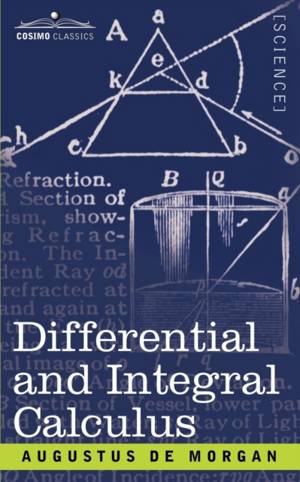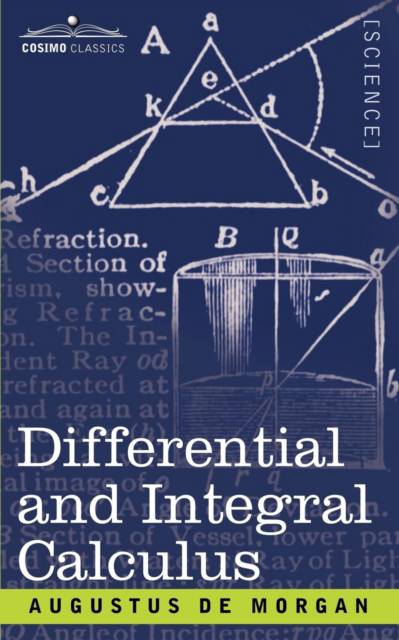
- Afhalen na 1 uur in een winkel met voorraad
- Gratis thuislevering in België vanaf € 30
- Ruim aanbod met 7 miljoen producten
- Afhalen na 1 uur in een winkel met voorraad
- Gratis thuislevering in België vanaf € 30
- Ruim aanbod met 7 miljoen producten
Zoeken
€ 24,45
+ 48 punten
Uitvoering
Omschrijving
In this early textbook by mathematician Augustus De Morgan and first published in 1836, serious students of math will find useful lessons, explanations, and diagrams. Math and math textbooks of his time were found to be generally inaccessible to the public at large, so De Morgan, who believed that everyone should be educated in mathematics because it was so essential to science and modern life, relies on simple, straightforward, and easy-to-understand language, despite the depth of his topic. Among the areas covered here are: infinitely small quantities, infinite series, ratios of continuously increasing or decreasing quantities, and algebraical geometry. British mathematician Augustus De Morgan (1806-1871) invented the term mathematical induction. Among his many published works is Trigonometry and Double Algebra and A Budget of Paradoxes.
Specificaties
Betrokkenen
- Auteur(s):
- Uitgeverij:
Inhoud
- Aantal bladzijden:
- 156
- Taal:
- Engels
Eigenschappen
- Productcode (EAN):
- 9781602063792
- Verschijningsdatum:
- 15/04/2007
- Uitvoering:
- Paperback
- Formaat:
- Trade paperback (VS)
- Afmetingen:
- 127 mm x 203 mm
- Gewicht:
- 176 g

Alleen bij Standaard Boekhandel
+ 48 punten op je klantenkaart van Standaard Boekhandel
Beoordelingen
We publiceren alleen reviews die voldoen aan de voorwaarden voor reviews. Bekijk onze voorwaarden voor reviews.







